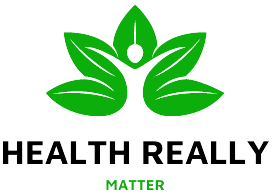A Health Savings Account (HSA) is a tax-advantaged savings account available to individuals enrolled in a High Deductible Health Plan (HDHP). HSAs offer several benefits and flexible usage options designed to help individuals save for qualified medical expenses while reducing taxable income.
Benefits of HSAs:
- Tax Advantages: Contributions made to an HSA are tax-deductible, meaning you can reduce your taxable income for the year in which contributions are made. Additionally, earnings on HSA funds grow tax-free, and withdrawals for qualified medical expenses are also tax-free.
- Savings for Medical Expenses: HSAs are designed to cover a wide range of qualified medical expenses, including deductibles, copayments, coinsurance, and other eligible healthcare costs not covered by your health insurance plan. This includes expenses for dental and vision care, prescription medications, and certain medical equipment.
- Portability and Control: Unlike Flexible Spending Accounts (FSAs), funds in an HSA roll over from year to year and are portable, meaning they remain with you even if you change jobs or health insurance plans. This flexibility gives you control over how and when to use your HSA funds for medical expenses.
- Long-term Savings: HSAs can also serve as a long-term savings vehicle for healthcare costs in retirement. After age 65, you can withdraw funds from your HSA for non-medical expenses without penalty, although withdrawals for non-qualified expenses are subject to income tax.
Using Your HSA:
- Contributions: Determine how much you can contribute to your HSA annually based on IRS limits. For 2024, the contribution limit is $3,800 for individuals and $7,600 for families. Individuals age 55 and older can make an additional catch-up contribution of $1,000.
- Qualified Expenses: Familiarize yourself with the types of medical expenses that qualify for HSA withdrawals. Keep receipts and documentation for all healthcare expenses to substantiate withdrawals and ensure compliance with IRS regulations.
- Investment Options: Some HSA providers offer investment options once your account reaches a certain balance. Investing HSA funds can potentially increase your savings over time, although it comes with investment risks.
Conclusion:
Health Savings Accounts (HSAs) provide valuable tax advantages and flexibility in managing healthcare expenses. Whether you’re looking to save on taxes, cover medical costs, or plan for future healthcare needs, HSAs offer a versatile savings solution. At Health Really Matter, we’re dedicated to helping you understand the benefits of HSAs and how to maximize their usage to achieve financial security and health care flexibility. Stay informed and explore the potential of HSAs as part of your comprehensive health insurance strategy.
